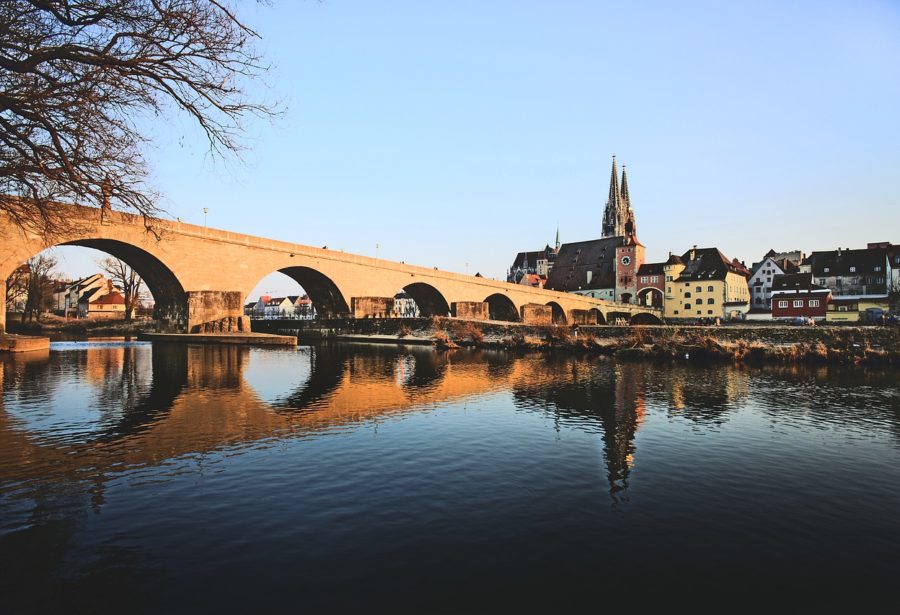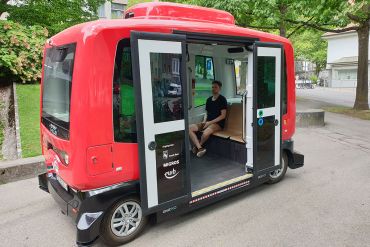
City in the spotlight: Regensburg
The 170.000-inhabitant Bavarian university city is home to various large companies and multinationals, attracting approximately 80.000 commuters daily. The city’s transport policy, which was geared towards private transport, is now shifting towards public transport and cycling. Thus, Regensburg provides bus services to commuters and inhabitants. Even though the city’s bus lines are travelling 5.5 million vehicle kilometers per year, modal split is still in favour of individual modes of transport, with 41% of trips are done by private car, 11% by public transport and 48% of inhabitants are walking or cycling.
Initiatives for additional modes of transport, like a tramway, were started by stakeholder groups and received wide support from inhabitants. The construction would continue the tradition of tramways in Regensburg, as they operated for more than 60 years in the beginning of the last century. Currently, the municipality did not present any concrete plans for the construction of a tram through the city centre.
 Nevertheless, Regensburg aims to integrate emerging mobility solutions, such as autonomous vehicles, as well as sharing of electric vehicles (EVs) and bikes, which just started recently. The Bavarian city gave the green light for the autonomous people mover project in the beginning of 2020. First vehicles will drive through the business park of the city by the end of 2020.
Nevertheless, Regensburg aims to integrate emerging mobility solutions, such as autonomous vehicles, as well as sharing of electric vehicles (EVs) and bikes, which just started recently. The Bavarian city gave the green light for the autonomous people mover project in the beginning of 2020. First vehicles will drive through the business park of the city by the end of 2020.
Vehicles will have a capacity of up to six passengers and one operator, who can steer the vehicle in case of an unplanned manoeuvre or obstacle. During the pilot phase of two years, passengers can use the vehicle for free.
Regensburg also focused on the city centre by investing in a bike sharing scheme with about 600 shared bicycles and e-bikes to start operations in 2021. The new scheme will have a mix between station-based and free-floating bicycles. Since the implementation of most emerging mobility solution are in the future, the main questions are:
- Shared mobility services claim to reduce the need for owning a car. To what extent the shared mobility services implemented in the city have an impact on car ownership and the reduction of car traffic?
- What is the impact of the new mobility options on air quality?
- What are the optimal pricing strategies of the bike-sharing system?
The MOMENTUM project is creating a travel model, which includes the new transport options in combination with existing data on cars, public transport and cycling. The travel model based on existing traffic- and air quality data, integrating bike use and make forecasts.


